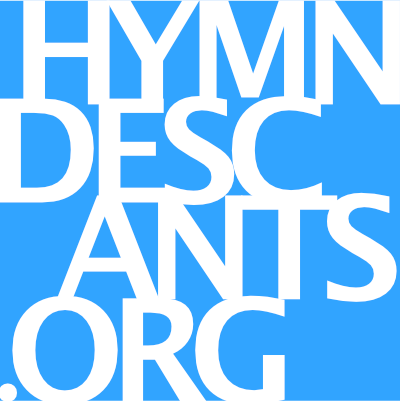standard harmonization > a cappella verse > ad lib organ bridge > harmonized descant Free score.
1 unison
Abide with me; fast falls the eventide;
The darkness deepens; Lord with me abide.
When other helpers fail and comforts flee,
Help of the helpless, O abide with me.
2. satb
Swift to its close ebbs out life's little day;
Earth's joys grow dim; its glories pass away;
Change and decay in all around I see;
O Thou who changest not, abide with me.
3 descant
Hold Thou Thy cross before my closing eyes;
Shine through the gloom and point me to the skies.
Heaven's morning breaks, and earth's vain shadows flee;
In life, in death, O Lord, abide with me.
Henry Francis Lyte obliquely references the apostles' plea, "Abide with us, for the day is far spent," in this hymn, an allusion for the faithful that they are not alone in their final hour of trial. The gloaming of eventide makes a powerful metaphor for life's final turn of circumstances, but as one's worldly life dims, faith in an abiding Lord illumines the passage - there is no going darkly. There are two stories behind the writing of this hymn: that Lyte wrote it for a dying friend, then a quarter century later, that Lyte wrote it about his own end. Since both stories can't be true, it's likely that neither are. These have the aura of self-promotional myth-making, as though work of this quality needed any kind of marketing help. The work is strong enough stand on its own. All it needed was a tune as good as the text, which was provided by William Henry Monk, music editor of Hymns Ancient and Modern (1861) in which this tune first appeared. It is a beautiful and singable tune that has the appeal of being immediately familiar - and loved - upon first and every hearing.
Updated: November 2020 (edits to descant and harmonization, added cadential ossia with lower tessitura)
allmusic.com (Lyte, Monk)
wikipedia (full text, Lyte, Monk)
gbod.com (Lyte, Monk)
The telegraph (The story behind the hymn, Rupert Christiansen)
Descant verse:
Hold thou thy cross before my closing eyes,
Shine through the gloom and point me to the skies.
Heaven's morning breaks and earth's vain shadows flee,
In life and death, O Lord, abide with me.
–Henry Francis Lyte, 1861

